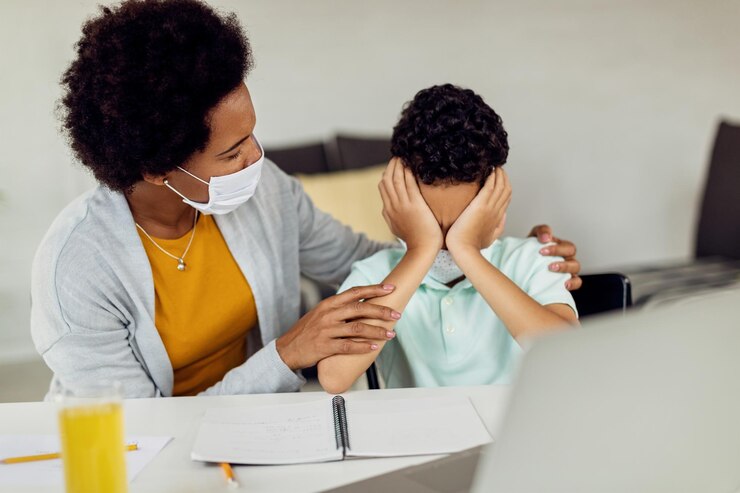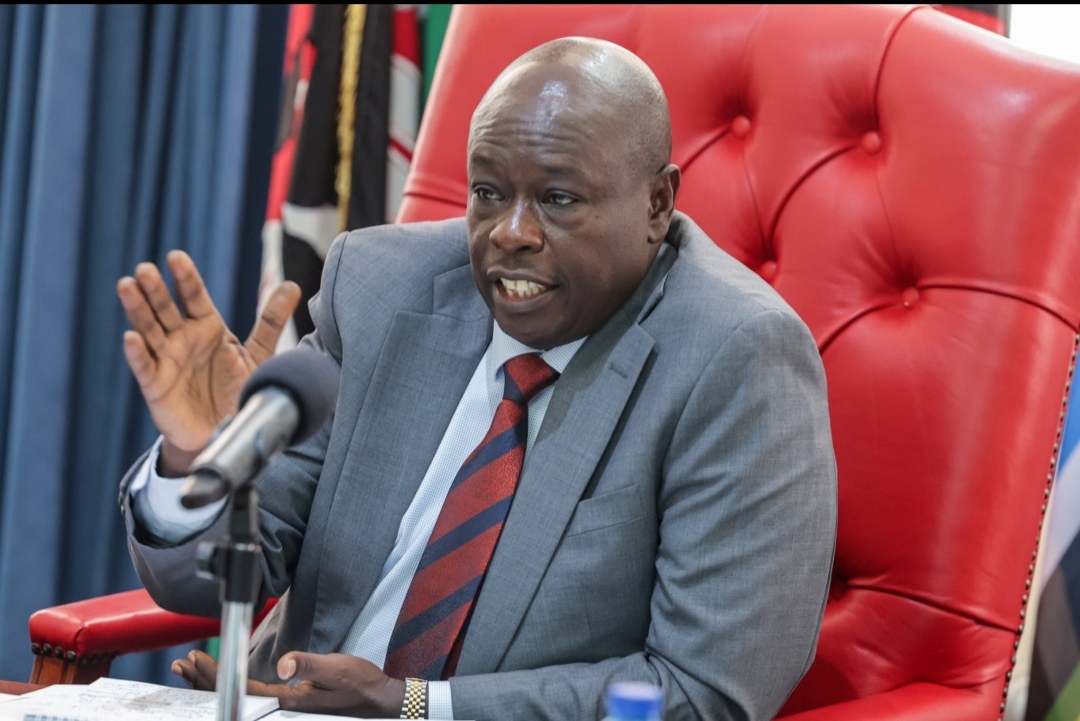Street URCHIN turned COUNSELLOR
Hanna Wanja, 32, lost her foster mother at the age of three. She was left under the care of a foster aunt who mistreated and kicked her out of her house into the streets. Today, Hanna reaches out to help street children through counselling. She narrates the story of her life to WANGARI MWANGI.
Hanna Wanja has an inviting smile that doesn’t betray the ordeals she has gone through in life. A counsellor at Napenda Kuishi Trust – a street children’s rehabilitation centre run by the St. John Catholic Church in Korogochoslum, Hanna knows too well the plight of street children having spent a good chunk of her life in the streets
“In 1990 when I was six years old, my foster aunt, a Changaa brewer in Korogocho slum, accused me of stealing her money -Kshs 200. I pleaded my innocence but she wouldn’t hear me out.Together with her daughter, they tied me up and beat me beforekicking me out of the house. She warned me never to return to her,house saying she could not continue living with a thief. With nowhere else to go, I turned to the streets,” Hanna narrates how her life in the streets started. She says that from a young age, her aunt made it clear that she was an outsider in their home, often reminding her that her late foster mother adopted her from Thika Mission Hospital. She would urge her to go to Thika town to look for her biological mother, as she was not welcome in her home. “These harsh words from my aunt came with cruel treatment. I was burdened with household chores and don’t recall attending school consistently,” says Hanna. She thinks the false accusation of stealing her aunt’s money was a justified way of getting rid of her. Grogan, a garage near Ngara in Nairobi, became Hanna’s first home in the streets. With time, she moved to other streets while slowly adjusting to the toughlife. It was in the streets that she was introduced to hard drugs and began sniffing tobacco and cocaine, and also smoking bhang and cigarettes. “One day I got seriously intoxicated after sniffing glue and got knocked down by a car while attempting to cross a street. I was admitted at Kenyatta National Hospital (KNH) for several months with a fractured leg and other injuries. Though life in hospital was better, I had to be discharged at some point with nowhere to go except back into the streets. Street life was difficult and one had to contend with the biting cold, sexual harassment by older boys, feeding from garbage cans, falling sick often, and being hired by goons to transport guns to different locations,” says Hanna. “One day I was hired by a strange man to carry a gun from the city centre to Kisumu Ndogo in Korogocho slums because I was familiar with the area. He paid me Ksh 20 after accomplishing the mission,” she recalls.
Getting out of the streets…
Hanna’s stint in the streets of Nairobi taught her that foreigners tended to give more handouts than locals. So in 1994, during one of her escapades with her fellow street children to the Dandora dump site, she bumped into a white couple and asked them for some money to buy sniffing glue. “To my surprise, the man responded in Kiswahili. He introduced himself as Father Mario and I was later to learn the woman with him was a Catholic nun. They lady quizzed me about my life in the streets and asked if I would like to go back to school,” recalls Hanna. The thought of going back to school excited Hanna and she agreed to follow them to Kariobangi. Her friends had left long before when they realized the wazungus were not going to part with any money. Father Mario took Hanna to Don Bosco Catholic Centre in Korogocho, which rehabilitates street children. She was cleaned up and fed and the centre looked for her aunt, hoping to reconcile them but she would not accept Hanna back. She spent the first few months at the centre fighting her drug addiction with the help of the Selecian nuns and Comboni missionaries who jointly managed the institution. After she was completely sober, in 1995 Father Mario enrolled her at Don Bosco Centre in Mombasa, an exclusive school for rehabilitated street girls. She became a class one pupil at the age of 12. She was determined to get an education despite her age. She completed primary school in 2002 and was admitted to high school at the same centre.
Back to the streets, again!
While in form two, she got impregnated by one of her teachers at the centre. Unfortunately, her case did not go past the police station and the man walked scot-free despite having sexual intercourse with a young student. The centre could not support her in her state and therefore sent her back to the Korogocho centre. Father Daniel, a new priest at the centre, rented for her a small house in Korogocho and promised to be giving her Ksh 500 each week for upkeep. She still lives in this house. The priest didn’t always give her the money and getting him became frustrating so she had no choice but to go back to street life. This time she kept out of drugs and lived from begging and selling plastics and scrap metal from dumpsites. She gave birth to her daughter, Lucy Wanjiru, in 2004 whom she named after her foster mother. When her daughter started getting constantly ill because of the harsh street life, she went back to Father Daniel and sought forgiveness and acceptance. He took her back to the rental house on condition she would not drift back to the streets. Father Daniel enrolled her for a mhairdressing course but she dropped out due to lack of interest. With an extra mouth to feed and no intention of going back to the streets, Hanna started doing laundry for working families living in Eastleigh estate for a fee. “I would wake up in the morning, leave my baby at the day care and go out in search of work. I earned about Ksh 200 a day, enough to feed me and my baby and pay for the day care,” says Hanna. Sometimes she would go for days without work and when it became impossible to manage, she again approached Father Daniel for any job at the centre. Lady luck smiled her way in 2007 when she was hired as a cook at Napenda Kuishi, a rehabilitation centre in Korogocho, started by the St. John Catholic Church. During her free time, she would attend class and listen in on the values the teachers were instilling on the rescued street children. It was from here that she slowly developed an interest in counselling the children, having walked in their shoes, not once but twice. “ I enrolled for a counselling course at Landmark Centre and School in Korogocho and earned a certificate in counselling. Napenda Kuishi hired me as a counsellor after graduation. I also felt the need to finish my high school education and enrolled as an adult learner. My determination caught the attention of the Comboni missionaries who sponsored me for the Kenya certificate of Secondary Education (KCSE) in 2010,” she explains her achievements. Hanna adopted a street child, four-year-old Fridah Joy, who was abandoned by her mother at four months.Fridah’s plight touched her, as it was similar to hers. She didn’t want this lovely child to go through what she had gone through in her own life. Her older daughter is now 10 years and in class five at St. Clare Primary School in Korogocho and Fridah joined nursery in the same school this year. When she is not spending time with her daughters, Hanna is at the centre counselling rescued street children and discouraging them from going back to the streets. Looking back at her life, she wishes society would view street children differently. “Street children are often judged harshly. What most people do not know is that many street children are victims of circumstances and are always hoping that someone will give them a better life away from the streets. I consider myself lucky because God gave me a third chance, even after falling back to the streets twice. My work at Napenda Kuishi is my way of giving back to society,” she says in conclusion.
Published on March 2014




